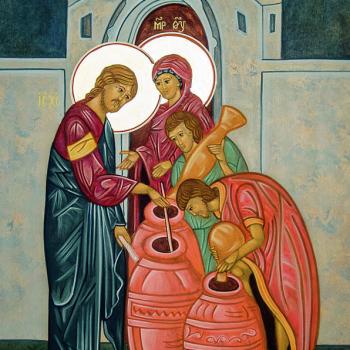Late Spring (1949)
Directed by Ozu: This film tells a story of the conflict of generations -- of traditional Japan and westernization, of father and daughter. It's a wonderful antidote against those "essentialists" who believe in the relativity of cultural values. This film illustrates the natural (and divine) law of paternal sacrifice and love. In it an aging professor, a widower, feigns a romance so that his daughter, who wishes only to take care of him, will be free to marry. Every shot, every composition contributes to the beauty and poignancy of this great film.
A Man For All Seasons (1966)
Directed by Fred Zinnemann: A superb account of the trial of St. Thomas More, brilliantly acted by Paul Scofield and better than Bolt's play of the same name. Zinnemann's The Nun's Story marks the beginning of Hollywood's negative portrayal of the Church. And Bolt's screenplay for The Mission looks at the Church from the point of view of Dostoevsky's "Grand Inquisitor," which makes this film a happier combination of their talents.
The Miracle Worker (1962)
Directed by Arthur Penn: Films that portray people overcoming handicaps or finding grace through them make up an important genre of Hollywood and TV movies. These range from Pride of the Yankees to Lorenzo's Oil. To my mind the best ever made is The Miracle Worker, the true story of Annie Sullivan's (Anne Bancroft) efforts to teach the deaf and dumb Helen Keller (Patty Duke) how to communicate.
My Night At Maud's (1969)
Directed by Eric Rohmer: In the third of his "Six Moral Tales," Rohmer daringly shows a middle-class protagonist (Jean-Louis Trintignant) in search of a good Catholic wife. En route he spends a night with the tempting divorcée Maud (Françoise Fabian), but does not consummate the relationship, much to the dismay of many critics, who see him only as a wimp. Marrying a more conventional woman (Marie-Christine Barrault) at the end of the film, he takes upon himself the burden of her guiltier past. Set in Clermont, the birthplace of Pascal, the film integrates the Pensées into the drama.
The Nazarín (1959)
Directed by Luis Bunuel: Although Bunuel was anticlerical most of his life, in this film, based on a novel by Galdos, he captures what it means to bear the cross.
North By Northwest (1959)
Directed by Alfred Hitchcock: Considered by the less astute as a potboiler thriller, this is actually one of the greatest "comedies of remarriage" ever made. The reverse of Vertigo made the year before, here the flawed hero and femme fatale save one another. Instead of romantic and obsessive love, it comically advocates an honest relationship and explores the notions of truth, identity, and the nature and purpose of art. When that impeccable villain James Mason remarks "real bullets, not very sporting," he announces the theme of the film, namely that through the play of art, we can discover our true selves and abandon the false fictions by which we erroneously live.
On The Waterfront (1954)
Directed by Elia Kazan: For once in a Hollywood film, a priest (Karl Malden) does good for the sake of Christ and says so. Marlon Brando, at the height of his career, deserved his Academy Award in this literate, superbly directed film. Some critics claim that Kazan and Budd Schulberg, the screenwriter, made On the Waterfront to justify their own informing on the Communist Party, but this film is more remarkable in that Kazan and actors such as Lee J. Cobb, distinguished alumni of the leftist Group Theater of the '30s, should see as an enemy of the people not the banks, but a corrupt labor union.
The Passion Of Joan Of Arc (1928)
Directed by Carl Dreyer: The austerity and intensity of Dreyer's work resembles that of Bresson's, and like Bresson, he centers his films on religious experience. In this silent film, Dreyer follows the text of Joan's trial, making his version of Joan the most accurate we have. Maria Falconetti as Joan conveys the anguish of the maid before her English inquisitors. As color is to the great black-and-white films, so spoken dialogue would be to the great silent ones.
Pickpocket (1959)
Directed by Robert Bresson: Like Ford and Capra, Bresson excelled in making Catholic films. In Pickpocket, he provides his version of Crime and Punishment. In this case the hero is not a murderer, but an intellectual who picks pockets with Nietzschean rationalizations. The Sonia figure, a young woman who has helped his ailing mother, leads him, when caught, to the threshold of redemption. After a few exposures to the current Hollywood style of explosion and shattered glass, one appreciates the aesthetic and religious economy of Bresson.




